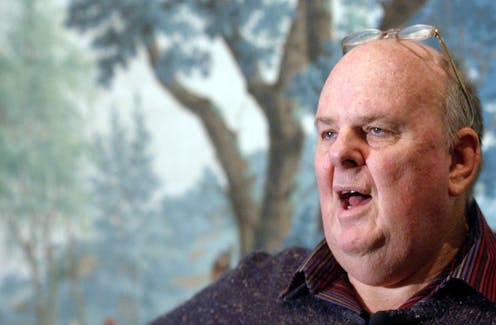In his last poems, Les Murray offers a gentle, gracious bow of farewell, and just a few barbs
- Written by Lyn McCredden, Personal Chair, Literary Studies, Deakin University

There are so many strange serendipities, and antipathies, forged across Les Murray’s work, verbal, historical and spiritual. In Continuous Creation[1] also, Murray’s last, posthumous book (published almost three years after he died[2] in a nursing home in Taree) these counterpoints and challenges await readers, mostly in gentle forms.
There is the sometimes visceral dissecting and reforming of contradictions; the verbal joy in paradox and pun; the delicacy co-existing with the broad vernacular; the hallelujah with the rage.
Review: Continuous Creation: Last Poems - Les Murray (Black Inc)
The past is imagined as “a receding star” before which the poet submits, waiting, in a place where “flesh tells what mind forgets”.

















